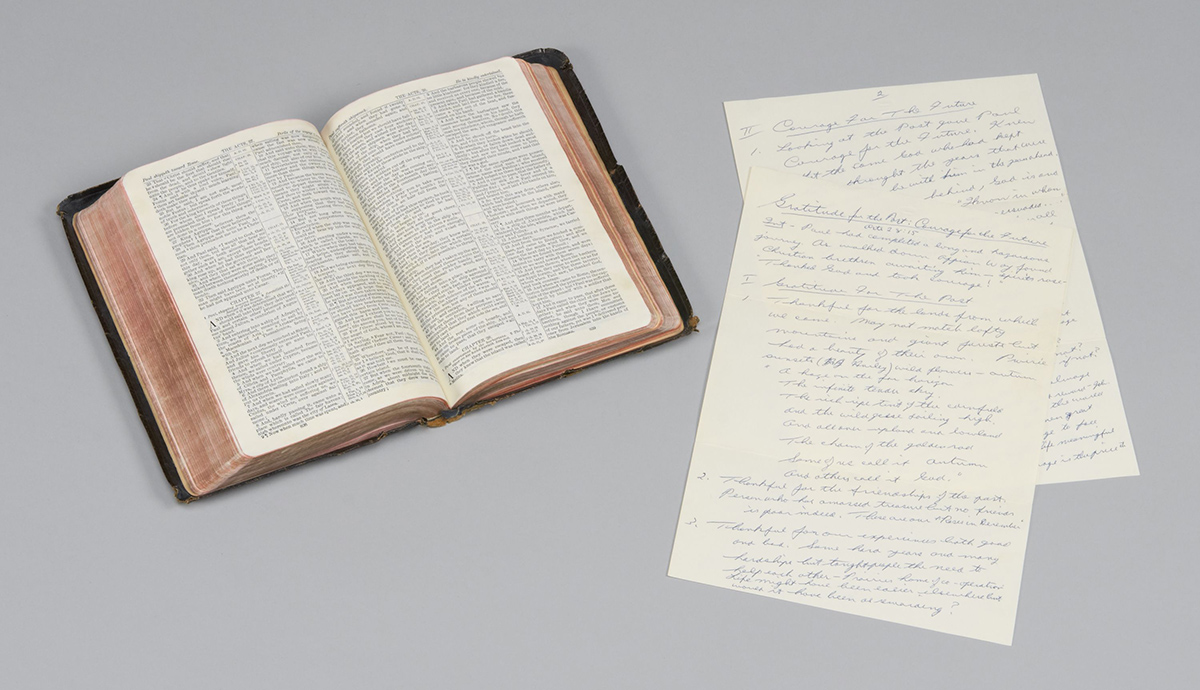An ordinary Bible with an extraordinary past
March 18, 2013
What makes Tommy Douglas’ humble Bible, printed in the millions, so unique? It’s because it nourished not only his spiritual life but also his social activism and his political involvement. The proof can be seen in the many underlined passages, annotations and pages with turned-down corners in this Bible, the only one Douglas ever owned.
In the eyes of this native of Scotland, whose family settled in Winnipeg in 1919 when he was 15 years old, Christianity was a social religion that sought to make life better here on earth while preparing us for the hereafter. This belief, called the Social Gospel, was to have a profound impact on Douglas’ life.

Tommy Douglas’ Bible and notes
Photo: IMG2013-0066-0008-Dm
Already in 1919, the teenaged Douglas witnessed the general strike that rocked Winnipeg. Born to a poor but proud and devout family, he showed that he was worthy of his heritage. Active in the Baptist Church, he decided to become a minister and was ordained in 1930. He served as pastor of a church in Weyburn, Saskatchewan, a province that had been hard hit by the economic depression and drought. He soon decided that political action was necessary to alleviate the suffering of his fellow human beings.
In 1934 he left the pulpit for the political rostrum, becoming an advocate for ordinary Canadians. In 1935 he was elected to Parliament as the Member for Weyburn, but he made his mark first in Saskatchewan politics. There he led the Co‑operative Commonwealth Federation (CCF), an openly socialist party, to victory in 1944 and served as provincial premier until 1961. He was thus the first head of a socialist government in North America. He resigned in 1961 when he shifted to federal politics and co‑founded the New Democratic Party (NDP), the successor to the CCF. He headed the party until 1971 and then served as its energy critic until he retired from public life in 1979.
Canadians owe him their gratitude for the first provincial health insurance plan, enacted in 1961, as well as Canada’s first Bill of Rights.
“Tommy Douglas made an invaluable contribution to political life,” says Xavier Gélinas, Curator of Canadian Political History at the Canadian Museum of Civilization. “In total, he provided the impetus for about a hundred pieces of legislation, several of which can be said to have shaped the Canadian identity.”
In recognition of this immense contribution, in 1980 he was named a Companion of the Order of Canada. He died on February 24, 1986. Today his Bible is one of the treasures in the Museum’s collections.